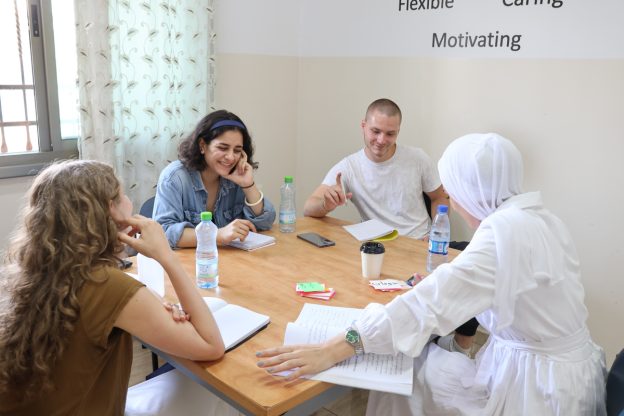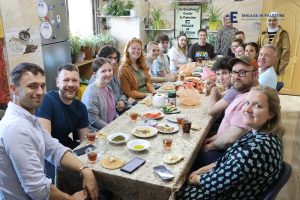9 Best Programs for Learning Levantine Arabic Dialect: Learning Levantine Arabic opens the door to one of the most widely spoken and culturally rich dialects of the Arabic language. Spoken across Palestine, Jordan, Lebanon, and Syria, Levantine Arabic—also known as Shami Arabic—connects millions of people and reflects centuries of history, tradition, and cultural exchange. Unlike Modern Standard Arabic (MSA), which is mainly reserved for formal settings, Levantine Arabic is the language of daily life, making it the best choice for anyone who wishes to engage with local communities, travel in the region, or explore Middle Eastern culture in depth.
In this guide, we’ll introduce you to the key features of Levantine Arabic, explain how it differs from MSA, and share valuable tips for learning it effectively. You’ll also find a comprehensive overview of some of the best programs available in Palestine, Jordan, and Syria—whether you’re looking for intensive study, summer or winter immersion courses, or flexible short-term options. Whether you’re a student, professional, researcher, or simply passionate about languages, this resource will help you navigate your journey toward mastering Levantine Arabic.
Table of Contents
What Is Levantine Arabic?
Levantine Arabic or the Levantine dialect refers to the dialect of Arabic spoken by people living in the Levant region of the Middle East – Syria, Lebanon, Palestine, and Jordan. It is also sometimes called Shami Arabic, as “Sham” is the Arabic word for the Levant. It’s a dialect inextricably linked to the history and culture of the region, and it has been influenced by several different cultures and languages over time, including Aramaic, Greek, Latin, Syriac, Turkish, and French.
It’s important to note that even within the Levant, there are regional differences in terms of vocabulary, accent, pronunciation, and colloquial expressions. Even within the same country, differences can exist from one city or village to the next.

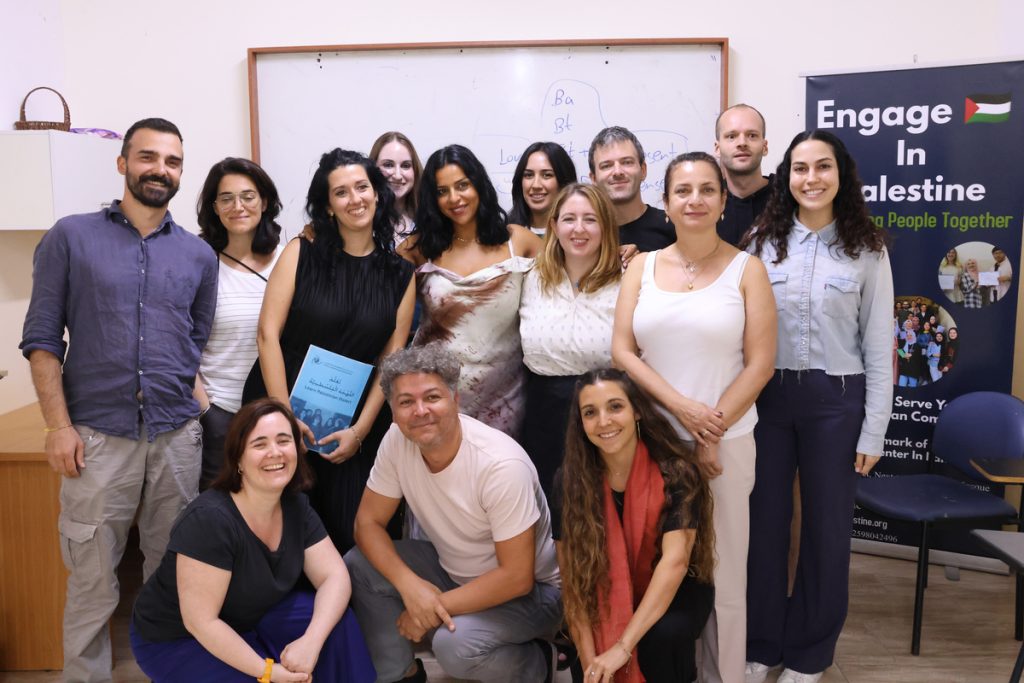
The Differences Between Levantine Arabic And Modern Standard Arabic
Many institutions will teach Modern Standard Arabic (MSA), claiming it’s the language spoken by all Arab peoples. It is more useful for business, reading newspapers, and official documents, and is more recognizable around the Arabic-speaking world.
However, MSA is rarely a spoken language, and it isn’t used in regular communication between people. When native Arabic speakers hear someone speaking MSA, it can sound a bit funny and strange, as MSA is quite formal and people don’t say it in an everyday context. Therefore, if you want to learn the Arabic spoken by Arab people, it’s essential to understand their dialect.
While there are numerous differences between MSA and Levantine Arabic, overall, there are far fewer differences than between MSA and a North African dialect, for example.
Some differences are outlined below.
Pronunciation
There are some pronunciation differences, for example, the letter “qaf” is pronounced differently by several Levantine Arabic speakers. Some will pronounce “qaf” as “qaf”, others will replace it with an “alif” or “kaf” sound. There are other pronunciation differences between MSA and various Levantine Arabic speakers, particularly in vowels and some other consonants.
Grammar
There are also some grammatical differences, such as in structures and the way sentences are formed. Usually, these are harder and more complex in MSA. These grammatical differences include case endings, verb conjugations, some pronouns, word order, syntax, and more.
Vocabulary
Finally, there are many differences between MSA and Levantine Arabic in terms of vocabulary. Around 50% of the vocabulary in Levantine Arabic corresponds with MSA, so about half the words are the same or very similar. Even from one Levantine city or country to the next, there will be some differences in vocabulary, which is a common feature of any widely spoken language.
A Few Tips For Learning Levantine Arabic
The most important thing that any language learner can do is to practice, practice, practice. The only way to improve your Arabic speaking ability is to practice speaking again and again, even if you are saying to yourself or to a pet. The same principle applies to listening, reading, and writing skills.
There are also several ways to practice Arabic without dedicated study. These include watching Arabic films and series in the Levantine dialect, of which there are many on Netflix. You can also listen to Arabic songs to pick up pronunciation, vocabulary, and expressions from the lyrics.
If you are at an intermediate or advanced level, you can also try reading articles online about your interests to build your vocabulary and reading skills. Finally, if you have any native Arabic-speaking friends, you can always chat or text with them. It’s very easy to add an Arabic keyboard to your phone, making it much easier to practice and communicate in Arabic.
9 Best Programs for Learning Levantine Arabic Dialect
If you wish to study Levantine Arabic, you have several options where you can do this, which we will outline below.
Here you can check out which Levantine Arabic programs Engage in Palestine offers:
1. Intensive Palestinian Arabic Program
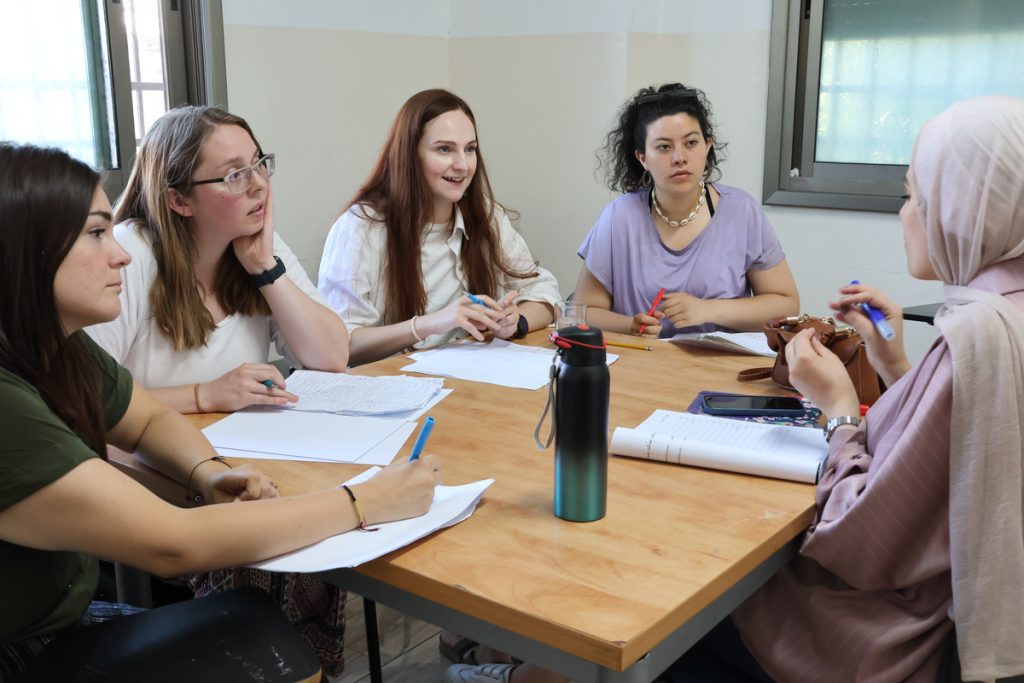
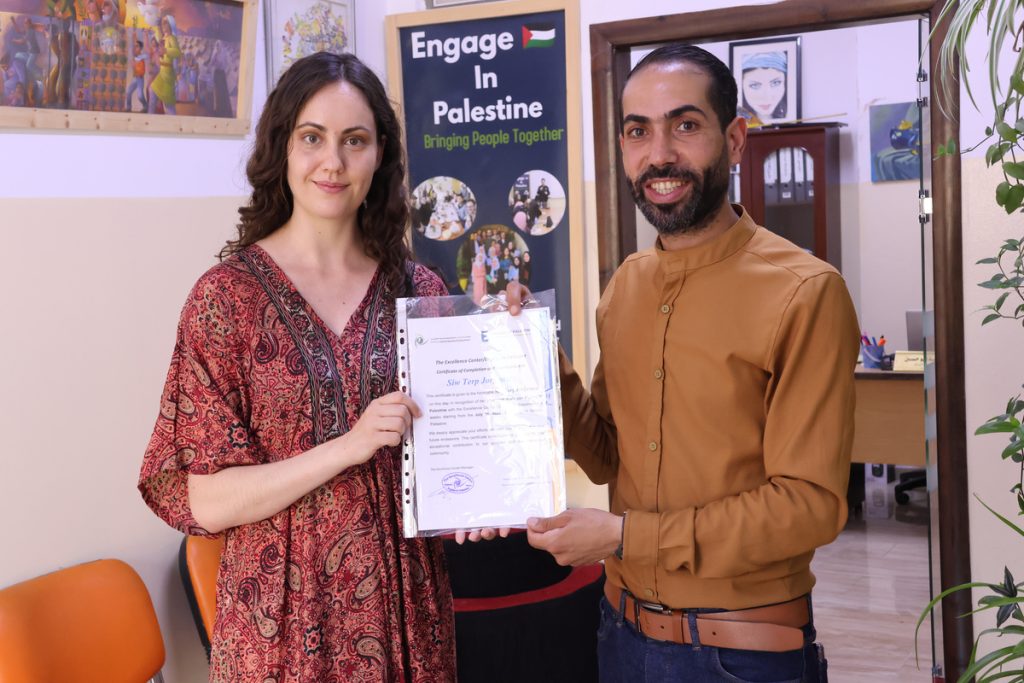
2. Winter Palestinian Arabic Program
3. Summer Arabic Immersion Program in Palestine
4. Intensive Jordanian Arabic Program
5. Summer Intensive Jordanian Arabic Program
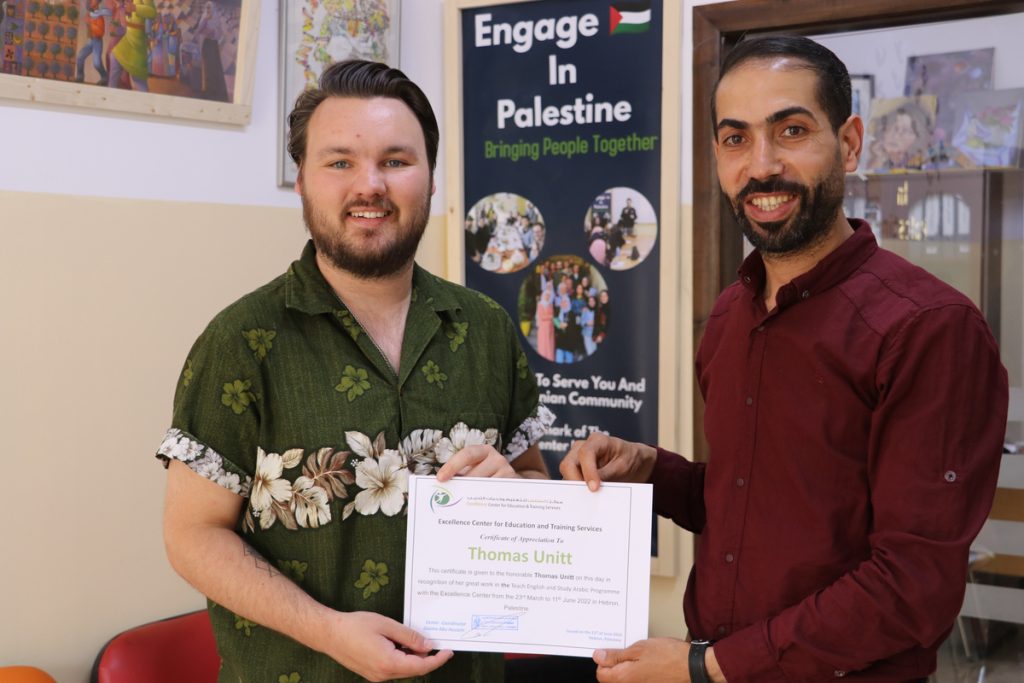
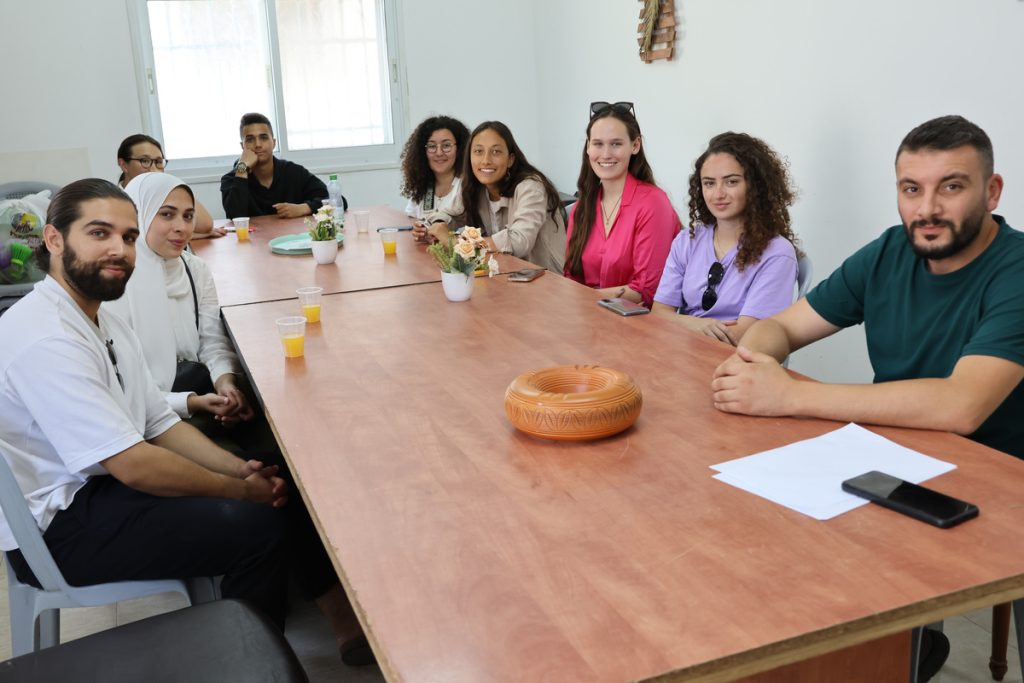
6. Winter Jordanian Arabic Program
7. Intensive Syrian Arabic Program
8. Syrian Summer Arabic Program
Syrian Summer Arabic Program in Damascus offers a unique opportunity to immerse yourself in the Levantine (Shami) dialect, Syrian colloquial Arabic, or Modern Standard Arabic (MSA) while experiencing the rich cultural and historical landscape of Syria. Hosted in Damascus, one of the oldest continuously inhabited cities in the world, this program is ideal for learners at all levels, from complete beginners to advanced students.
Whether you’re a university student, professional, or retiree, you’ll find a welcoming and supportive environment at Study Syrian Arabic School. Our experienced instructors and immersive curriculum ensure that your summer in Syria is both academically enriching and personally transformative.
9. Winter Syrian Arabic Program
The Winter Syrian Arabic Program in Damascus offers a rich opportunity to study Arabic in the heart of the Levant—Damascus, Syria. Whether you’re a complete beginner or an advanced learner, this immersive program is designed to help you develop fluency in Syrian Colloquial Arabic, Levantine (Shami) Arabic, or Modern Standard Arabic (MSA) while experiencing the warmth of Syrian hospitality and the depth of its cultural heritage.
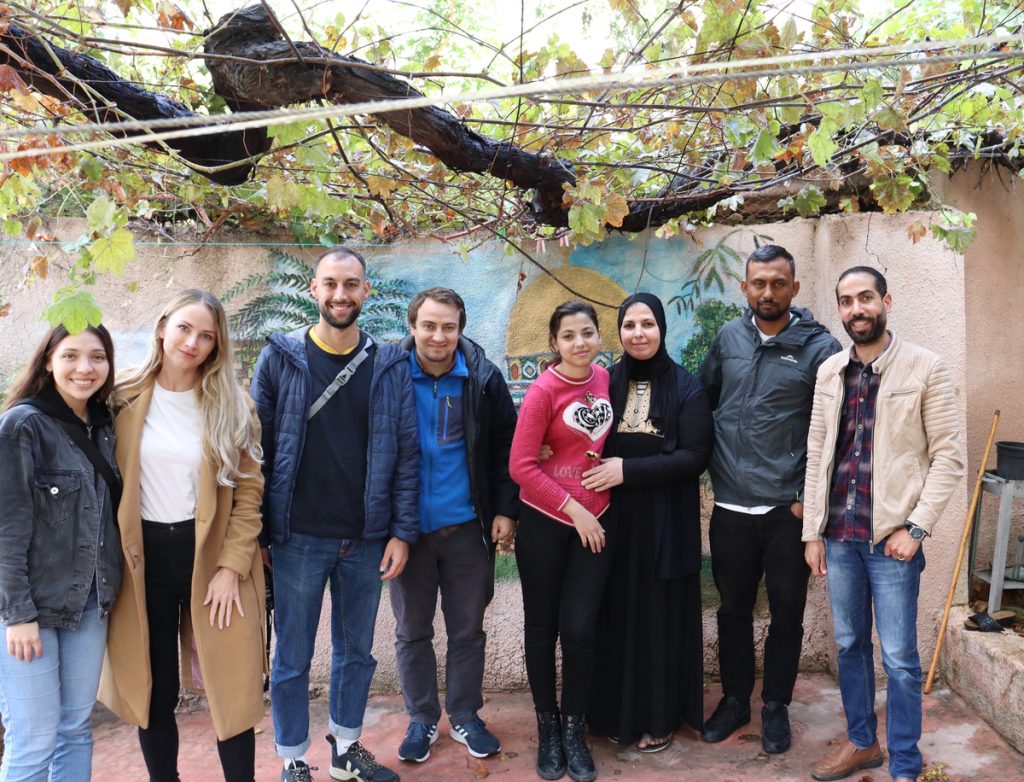
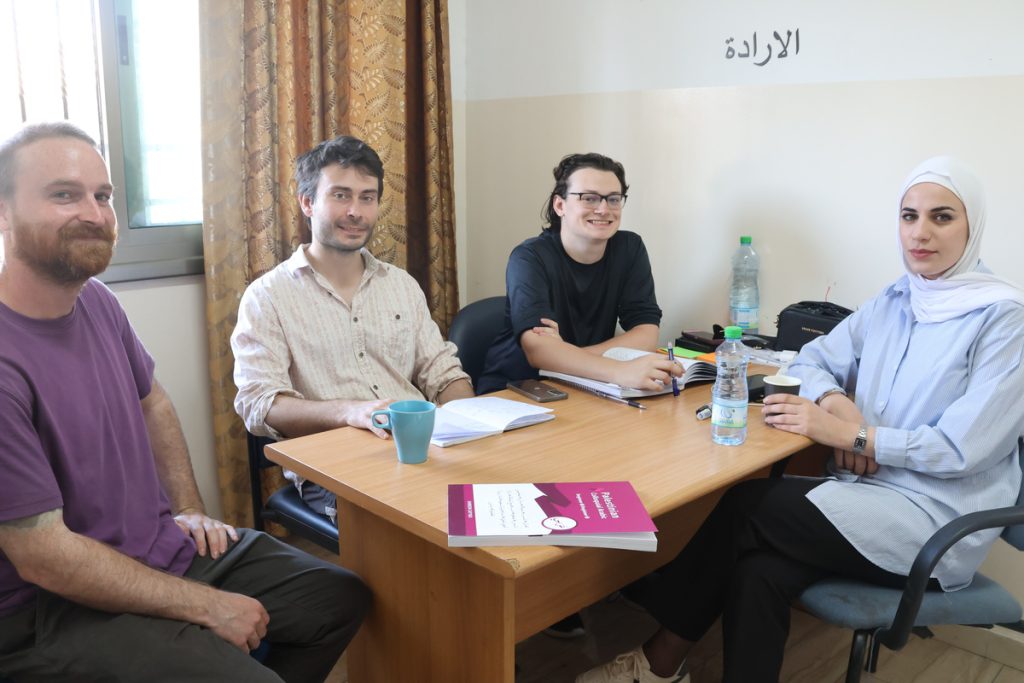
Running throughout December, January, and February, the program is ideal for students, professionals, and lifelong learners seeking a meaningful winter experience that combines language learning with cultural exploration. With small class sizes, experienced instructors, and cultural experiences that extend beyond the classroom, our Winter Immersion Course in Syria offers a fulfilling experience that goes beyond the textbooks.
Learn In Your Home Country
You may be able to study it in person in your home country if you can find a language school or private tutor offering classes. However, this can be challenging, as most language schools outside the Arab World offer classes only in Modern Standard Arabic. Another alternative to study from home is through the internet, whether with a private tutor online, through YouTube videos, or other study material you can find.
Or Learn In The Levant
However, if you wish to improve your language level rapidly, we recommend you come to the Levant to have a whole immersive language learning experience. Being surrounded by native Levantine Arabic speakers will help you improve your pronunciation, vocabulary, and fluency significantly. In addition to learning colloquial expressions, hand gestures are used while speaking, as well as providing crucial cultural context.
The vast majority of locals in the Levant are very friendly and hospitable and will be willing to help you practice your Arabic. If you have studied any Levantine Arabic before, it’s always a good idea to brush up on it before making your way to the Levant. This can make it easier to navigate your surroundings, and it can help you avoid getting ripped off by taxi drivers.
There Are Many Organizations And Programs To Learn In The Levant
In the Levantine region, there are plenty of organizations with which you can study the local dialect. There are intensive language courses with language schools, universities, and NGOs. Then there are volunteer programs that may offer Arabic language learning in exchange for volunteer work or by providing a service to their organization. You could also explore the option of a language exchange, where you visit an Arabic country to stay with a host family and teach them your native language in return for Arabic tuition.
Learn Levantine Arabic In Palestine
Palestine is an excellent country for Arabic students to learn Levantine Arabic. Learning in Palestine is an effective way for you to immerse yourself in the local culture and language. Palestinians are well-known for their warm and incredible hospitality, especially towards foreigners. This means that Palestinians are generally very open, patient, and willing to communicate, and will often appreciate your effort to speak their language. This gives Arabic students plenty of opportunities to interact and connect with locals in an immersive and authentic setting.
Being able to speak at least some Levantine Arabic will help you build meaningful relationships with local Palestinians and gain a deeper understanding of Palestinian customs and daily life. If you are interested in doing research, it will also allow you to connect with Palestinians and understand them in their native language. Additionally, learning Levantine Arabic can also allow you to understand some music, folk songs, poetry, and literature, allowing you to gain a deeper understanding and appreciation for Palestine’s rich culture.


Arabic Course Duration And Timing
We offer short-term Arabic courses with flexible durations and timings. You can study with us for as little as one week, up to 13 weeks or 3 months, which is the length of a semester at some universities. We offer Arabic lessons year-round, so you will generally be able to decide when to begin and end your Arabic program.
Reviews and Awards
In Conclusion
Learning Levantine Arabic has the potential to open up a world of opportunities for anyone interested in the Levant or the Middle East more broadly and its cultures. We believe the best and fastest way to learn it is by learning through immersion in the Levant.
At Engage in Palestine, in Hebron, West Bank, Palestine, we offer a variety of short-term immersive Arabic programs, including Levantine Arabic courses. Our courses span 1-13 weeks throughout the year, and we provide flexibility in terms of start and end dates. They are suitable for anyone wishing to study Arabic in the areas of the Middle East, the Levant, Palestine, or the West Bank.
Our well-qualified native Arabic speakers use communicative, immersive, and personalized approaches to help students improve quickly and make the most of their time together. However, learning Levantine Arabic with Engage in Palestine is not only about language acquisition; it is also a meaningful opportunity to engage in cultural exchange, grow relationships, and for students to learn more about Palestinian history, culture, and society.
We look forward to welcoming you to Engage in Palestine to study the Levantine Arabic dialect in the near future!
Contact Us
Tags: Intensive Levantine Arabic immersion courses, learn Levantine Arabic online, Levantine Arabic language programs for beginners, Top Levantine Arabic courses
